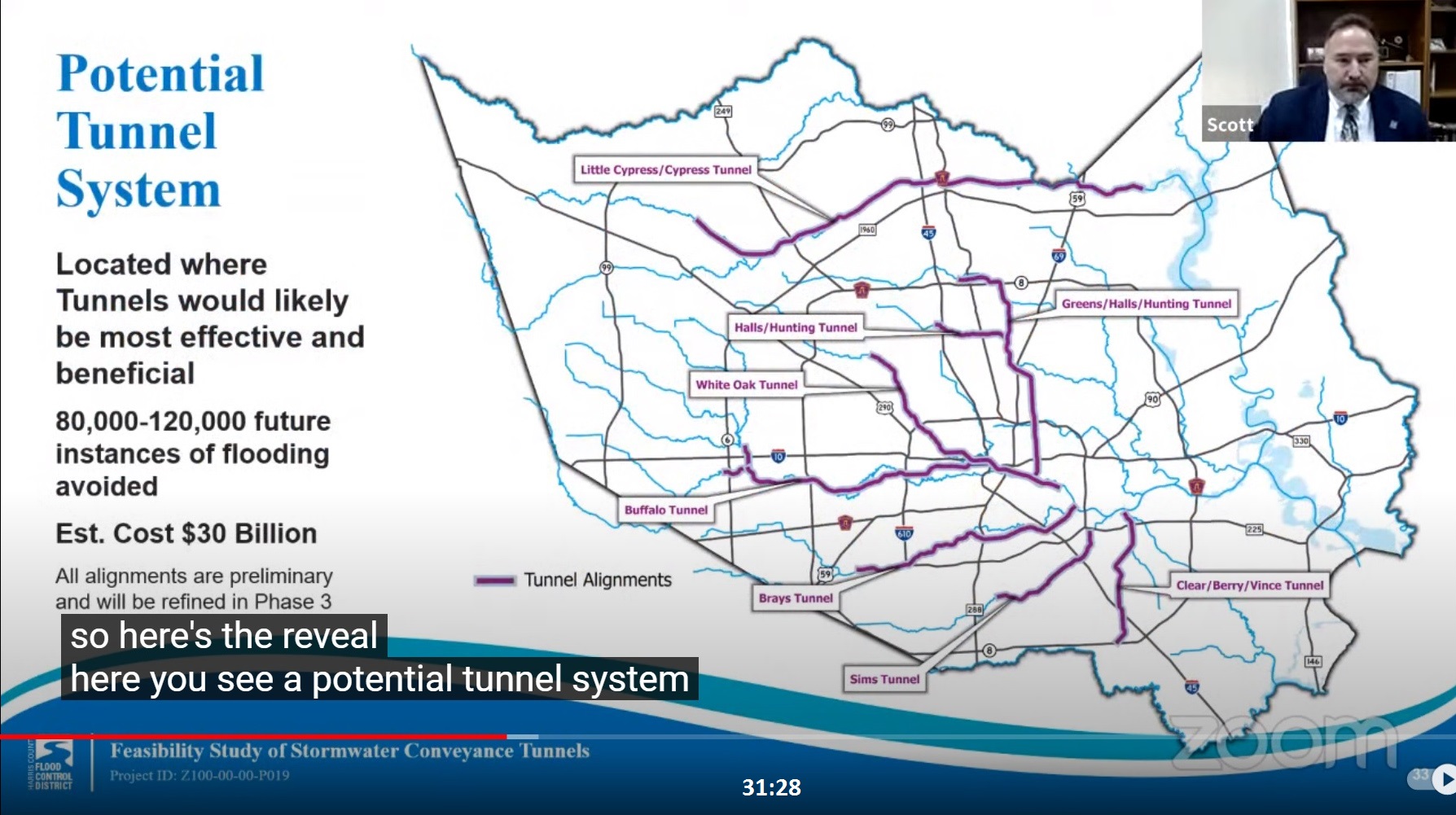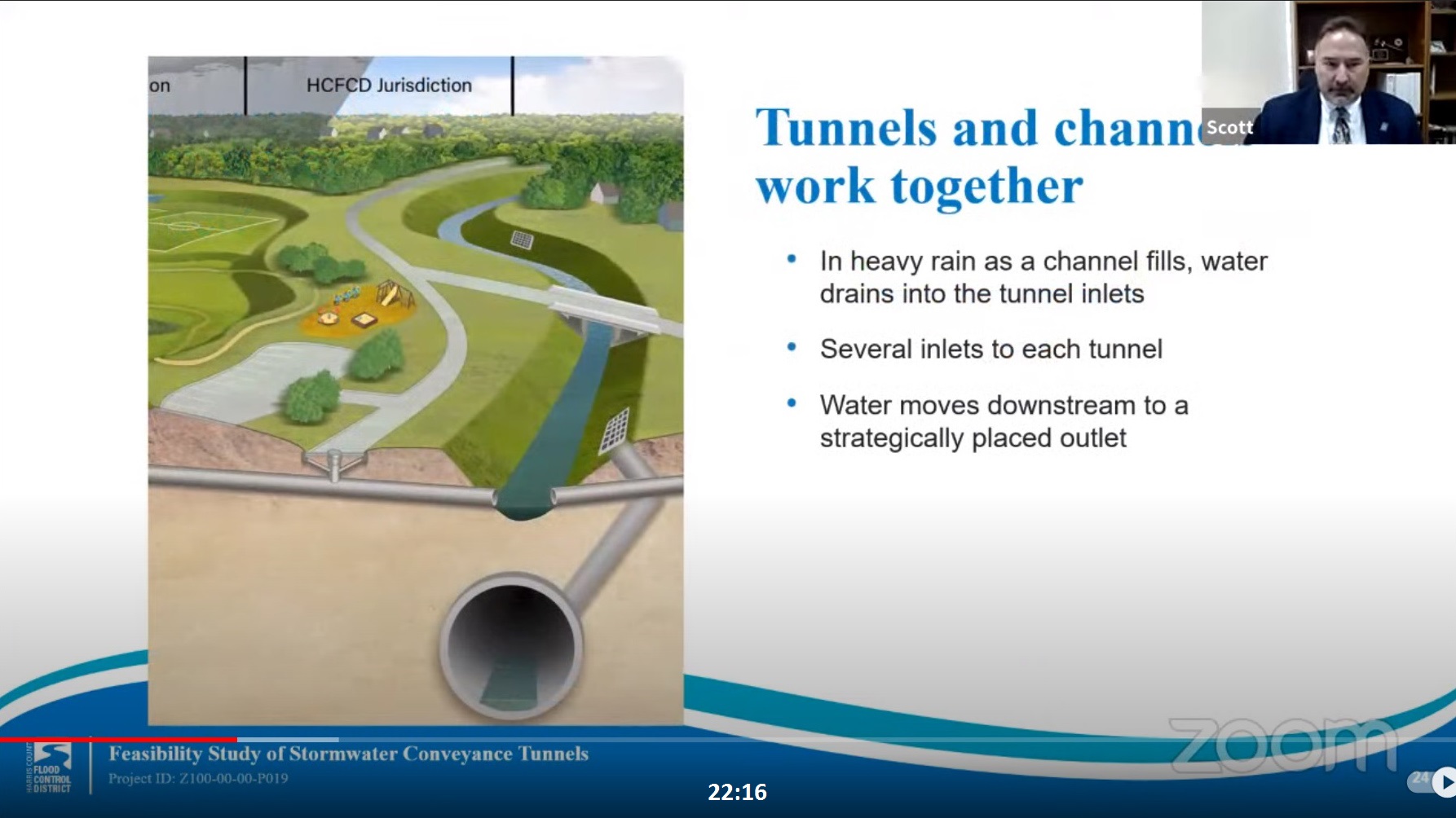During a Virtual Community Engagement Meeting on June 16, the Harris County Flood Control District (HCFCD) released the final report of its Phase 2 Study of the Feasibility of Constructing Storm Water Conveyance Tunnels. The primary presenter was Scott Elmer | HCFCD Asst. Director of Operations, who was joined for the Q & A session by Tommi Jo Scott | HCFCD Engineering Project Manager. A video recording of the meeting can be accessed at https://www.hcfcd.org/Z-08.


The Phase 1 study, completed in September 2019, had concluded at a conceptual level that tunneling could be applied in Houston’s soil conditions, and that tunnels could move enough water to make a difference.
The Phase 2 study included rainfall/runoff modeling, past flooding data, and the identification of high-risk “flood damage centers.” Its goal was to establish criteria for the location of tunnels that, together with other approaches, would potentially provide the greatest benefits. The report proposes 8 tunnel systems affecting 11 different bayous. Tunnels would range in capacity from 7,260 cubic feet per second to 12,020 cubic feet per second, and, with some exceptions, would generally follow along the channels of existing bayous. A summary table of the tunnels’ proposed lengths, diameters, and underground depths appears at 34:09 minutes into the video and on pages 7-3 and 7-4 of the 1860-page Phase 2 Final Report.
Public comments will help to shape the much more detailed Phase 3 Study, which will begin in spring of 2023 and is expected to take 3 years. The public comment period runs through Sept. 30. Submit your comments online at https://www.hcfcd.org/Z-08. Updates will be posted on the HCFCD website.
In other developments, the non-governmental organization Houston Stronger has established a group of expert advisors to help further refine its Buffalo Bayou Community Plan, which includes the possibility of tunnel conveyance, additional storage in Addicks and Barker Reservoirs, detention and retention in the Upper Addicks Watershed, and Nature-Based Solutions in the Upper Cypress Creek Watershed. Once additional information has been received from them, another meeting of the Environmental Roundtable will be scheduled. This meeting will go over the findings to date and discuss proposed flood mitigation projects in the Upper Addicks and Cypress Creek watersheds. The expert advisors are also reviewing questions that were posed by participants during the first two meetings of the Environmental Roundtable, with the aim of providing answers by late August.
For more background on the flood tunnel studies and other local flooding issues, check out earlier articles on this subject that have appeared in the Bayou Banner.
Photo credit: Houston Stronger.